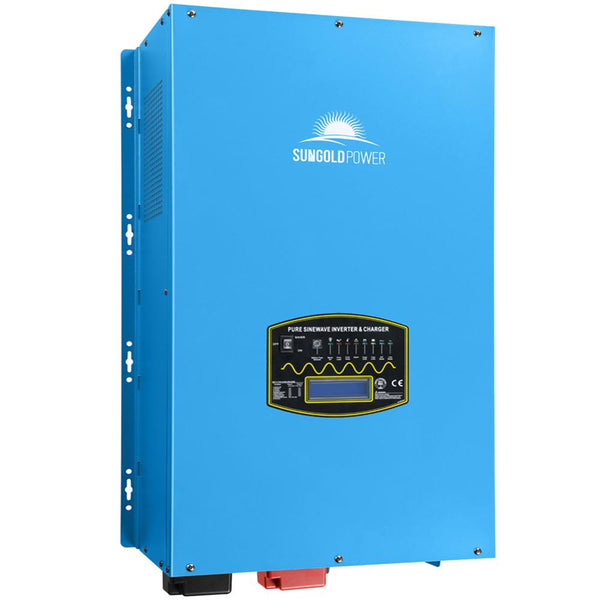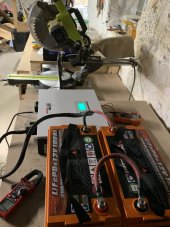VincentBuffalo
New Member
- Joined
- Jan 7, 2022
- Messages
- 6
I would like to build a solar generator using a 100ah LifePO4 battery and a 2000w invertor (4000w surge). It's a temporary situation as I am building a house and will ultimately be connected to the grid. The 100ah battery + 2000w inverter should be fine for what I need except that I would love to run my miter saw and circular saw with it.
I measured the surge current on my miter saw at 40amps and continuous at 8 amps. The battery can handle 1200w continuous and 2400w surge so with 4800w surge it won't work. I considered the following options:
--> Upgrade to a 3000w (6000w surge) inverter with 2x100ah batteries in parallel --> easy option but too expensive, I might be better off buying a battery miter saw
--> Use the miter saw with a GS10 Soft Starter (plug in). Not sure if it would work but @$130 it's much cheaper
I am a beginner so any comments would be appreciated, thank you!!
I measured the surge current on my miter saw at 40amps and continuous at 8 amps. The battery can handle 1200w continuous and 2400w surge so with 4800w surge it won't work. I considered the following options:
--> Upgrade to a 3000w (6000w surge) inverter with 2x100ah batteries in parallel --> easy option but too expensive, I might be better off buying a battery miter saw
--> Use the miter saw with a GS10 Soft Starter (plug in). Not sure if it would work but @$130 it's much cheaper
I am a beginner so any comments would be appreciated, thank you!!




